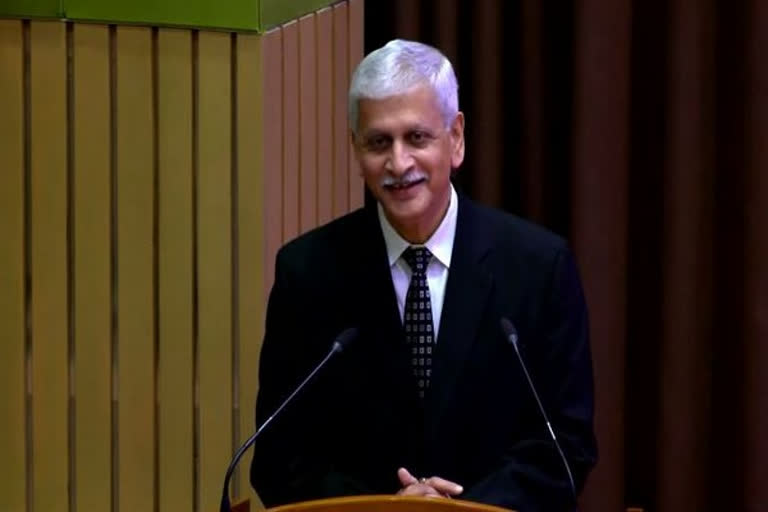Bhubaneswar: As part of the celebrations of 75th year of the Orissa High Court, Chief Justice of India Uday Umesh Lalit on Saturday inaugurated 34 paperless courts in all 30 districts of Odisha.The concept of paperless court has been successfully implemented in the Supreme Court and different high courts including in Odisha.
However, Odisha is the first state in the country to launch paperless courts in all the districts.The CJI has inaugurated the courts in a function organised at the Odisha Judicial Academy in Cuttack, in the presence of SC judges D.Y. Chandrachud and M.R. Shah and Odisha High Court's Chief Justice S. Muralidhar.
The CJI said technological advancement has become essential for the functioning of the judiciary. About the evolution of IT in Indian judiciary, he shared his experience of working as a young lawyer in the pre-IT period and the ease of work that technological advancement has ensured over the years.
He also highlighted the positive impacts of paperless courts on the environment, and said he was happy to know that the judicial officers in Odisha voluntarily came forward for the paperless courts.Lauding the e-initiatives of the Orissa High Court, he said the court has shown the Indian judiciary a new direction, new light.
Chief Justice Muralidhar thanked the e-Committee, SC for the guidance and encouragement to the Orissa High Court in expanding the horizon of digitisation and using information technology for other initiatives like paperless courts, e-payment of court fee, virtual hearing, e-custody certificates, e-traffic challans and voluntary witness deposition centres in all the districts of Odisha.
He announced that shortly all the judicial officers in Odisha would be provided with touchscreen laptops to facilitate them to function paperless. Stressing upon the need of paperless courts for balancing the ecosystem and its other advantages, he said paperless courts in the district judiciary of Odisha is a significant milestone for the Indian judiciary.
Justice Shah hailed the e-initiatives of the high court of Orissa and expressed hope that those would be replicated in other states. Sharing his experiences, he said age is never a barrier in learning the use of IT which has become essential for making the justice administration friendly for all the stakeholders.
Enumerating the advantages of paperless courts, he emphasised on the need for advancement of courtroom technology. Justice Chandrachud, who heads the Supreme Court's e-Committee said that the high court has established itself as the pioneer in implementing the decisions of e-Committee and termed its initiatives as "path-breaking" for the rest of India.
Enumerating the advantages of paperless court, he said that it is cost-effective for litigants, time-saving for lawyers, effective in space management, and makes case information easily accessible at fingertips.
Justice Chandrachud informed that about 75 lakh judgments of various high courts have been made available on the National Judicial Data Grid (NJDG) for easy access of lawyers and judges, and real time virtual justice digital clocks have been devised for updated information about functioning of every wing of the Indian judiciary. (IANS)



